The revision and launch of the INTPA Evaluation Handbook mark a pivotal advancement in refining evaluation practices within the Directorate-General for International Partnerships (DG INTPA) and the Service for Foreign Policy Instruments (FPI). This handbook is designed to be a comprehensive guide, offering essential tools and insights for effectively planning, launching, managing, conducting, disseminating, and utilising evaluations at both INTPA as well as at FPI.
The Handbook is mainly targeted towards European Commission’s (EC) evaluation managers, navigating evaluation exercises but it is also useful for partners, such as external evaluation teams conducting evaluations, and last but not least the intervention participants from the respective partner countries. This document ensures that evaluations not only inform but also drive long term and transformational change.
The INTPA Evaluation Handbook is a product of collaborative efforts of a diverse group of experts and professionals, overseen by a Management Board comprising senior management from both INTPA and FPI. The Editorial Board, which included members from the European Commission's INTPA D4 and its associated support services—played a pivotal role in steering the development of this comprehensive guide. The Editorial Board thoroughly reviewed and compiled the handbook after extensive consultations with colleagues from INTPA, NEAR, and FPI.
The handbook is structured into four main chapters and a glossary of terms, each serving a distinct purpose. Readers can explore the chapters in any order that suits their needs, as it is not necessary to read the handbook sequentially.
The glossary provided in the handbook defines key evaluation-related terms and concepts, ensuring that all readers have a clear understanding of the terminology used throughout the document, and in general in evaluation exercises at INTPA and FPI. This ensures that the handbook serves as a valuable resource for both new and experienced evaluation managers, as well as the external evaluators, and partners using the guidance document.
The Role of evaluation in DG INTPA and FPI
Chapter 1 lays the groundwork by introducing the fundamental role of evaluation within INTPA and FPI. It begins by defining key concepts and differentiating between various types of evaluations, including intervention level, strategic, and meta-evaluations. This chapter emphasises the importance of timing in evaluations, illustrating how strategic scheduling can maximise impact and relevance. Additionally, it highlights the necessity of stakeholder engagement, underscoring how diverse insights and accountability can enhance the evaluation process.
By establishing a foundational understanding, this chapter ensures that all stakeholders share a common language and approach to evaluations. This shared understanding fosters collaboration and alignment, promoting effective partnerships and impactful interventions. Stakeholders gain clarity on how evaluations contribute to learning and accountability, setting the stage for meaningful results, and ultimately, the use and uptake of evaluations.
Chapter 2 is the backbone of the handbook and offers hands-on guidance for managing evaluations through every phase, from planning to follow-up of evaluations. The chapter is mainly designed for EC evaluation managers or those who want to understand the evaluation process at INTPA and FPI. It breaks down the evaluation process into distinct stages, providing step-by-step guidance, templates, and tools. This structured approach enhances consistency and efficiency, enabling evaluation managers to navigate preparation, implementation, and follow-up with confidence.
By equipping evaluation managers with practical tools and structured guidance, this chapter ensures that high-quality standards are maintained throughout the evaluation process. It empowers them to make sure that reliable and actionable evaluation outputs are delivered by the evaluators, which are crucial for informed decision-making and strategic planning.
Approaches, methods, and tools
Chapter 3 serves as an exhaustive reference for those seeking detailed information and theory behind practice in evaluation. It covers essential elements such as evaluation criteria, design, questions, different ways and approaches for data collection, useful analysis, and management. This chapter offers valuable insights to both evaluation managers and evaluators, enhancing their understanding and practices.
By providing in-depth insights into complex evaluation topics, this chapter supports sophisticated approaches that enhance the relevance and impact of evaluations. It allows evaluation teams to tailor their methodologies to align with project-specific goals, ensuring that evaluations are not only thorough but also contextually relevant. This depth of understanding enables evaluation managers to understand the theories behind different evaluation approaches, methods and tools, and help evaluators draw nuanced conclusions that can significantly influence outcomes.
Chapter 4 underscores the critical importance of ethics in evaluation practices and delivers a message that no accountability or transparency measures should supersede the safety and security of the people involved, and the partners we are working with. It defines core ethical principles such as integrity, respect, and accountability. The chapter discusses established standards that provide a framework for ethical evaluation practices, promoting professionalism and credibility. Additionally, it offers practical guidance for addressing ethical dilemmas, particularly in sensitive contexts, such as those affected by fragility, conflict, and violence, ensuring that evaluations are conducted with integrity and respect, and are based on the principles of ‘Do No Harm’ and ‘Leave no one behind’.
By promoting ethical practices, this chapter builds trust among stakeholders and ensures that evaluations are gender responsive, conflict sensitive, and contribute positively to everyone involved. It enhances the overall credibility and impact of evaluation efforts, fostering an environment where ethical considerations are paramount. This focus on ethics ensures that evaluations are conducted with respect for all participants, enhancing their validity and acceptance.
Wrap up
The INTPA Evaluation Handbook is an indispensable resource for the evaluation community associated with DG INTPA and FPI. It provides a unified framework for planning, managing, conducting, and disseminating evaluations, fostering learning and accountability at every stage. As a living document, it remains adaptive and responsive to emerging needs, ensuring that evaluations continue to drive effective and sustainable change in a rapidly evolving global landscape. By integrating innovative methodologies and ethical considerations, the handbook not only guides but also inspires stakeholders to embrace evaluations as a powerful tool for development and collaboration.
Through its structured approach and comprehensive resources, the handbook empowers evaluation managers and external evaluation teams to deliver evaluations that are not only methodically sound but also strategically impactful. It encourages a culture of continuous improvement and innovation, positioning evaluations as a cornerstone of effective international cooperation and partnerships. As EC evaluation managers, and various stakeholders utilise this handbook, they contribute to a shared vision of accountability, transparency, and transformational change, reinforcing the vital role of evaluations in shaping the future of global development initiatives.
Photo credit: Olympia de Maismont, European Union 2021, EC - Audiovisual Service
Meldea supports the EU's Directorate-General for International Partnerships (DG INTPA), the EU's Directorate-General for Neighbourhood and Enlargement Negotiations (DG NEAR) and the EU's Service for Foreign Policy Instruments (FPI), in improving the quality of performance, accountability and learning, for a better targeted and more sustainable impact of EU external action.
The handbook’s chapters were authored by (in alphabetic order) Hur Hassnain, Karen McHugh, and Marco Lorenzoni for Chapter 1; Valentin Alvarez for Chapter 2; and Anna Maria Augustyn, Rick Davies, and Patricia Rogers for Chapter 3. Margie Buchanan-Smith and Hur Hassnain wrote Chapter 4. The content was further enriched by the invaluable insights of peer reviewers Howard White from the Centre of Excellence for Development Impact and Learning (CEDIL) and Florencia Tateossian from UN Women. To ensure consistency, clarity, and coherence throughout the text, the handbook was professionally edited by Nita Congress, whose exceptional contributions ensured a polished and professional final product.
The handbook can be accessed on INTPA’s and FPI’s Evaluation Wiki and on Capacity4dev. For additional assistance or inquiries regarding the handbook, or to provide feedback on any of the components of the document, please contact the evaluation helpdesk at INTPA-evaluation-support@ec.europa.eu.



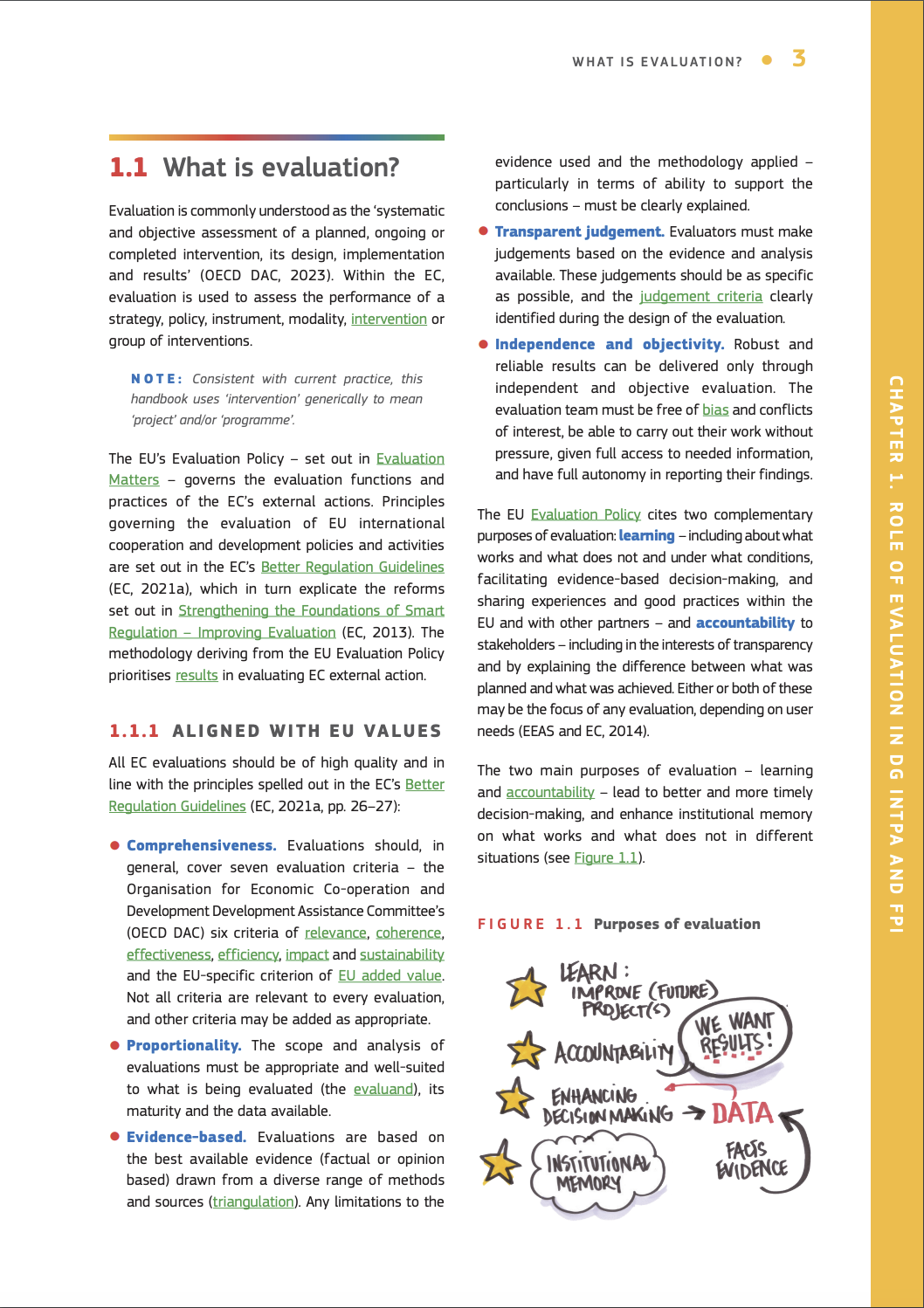
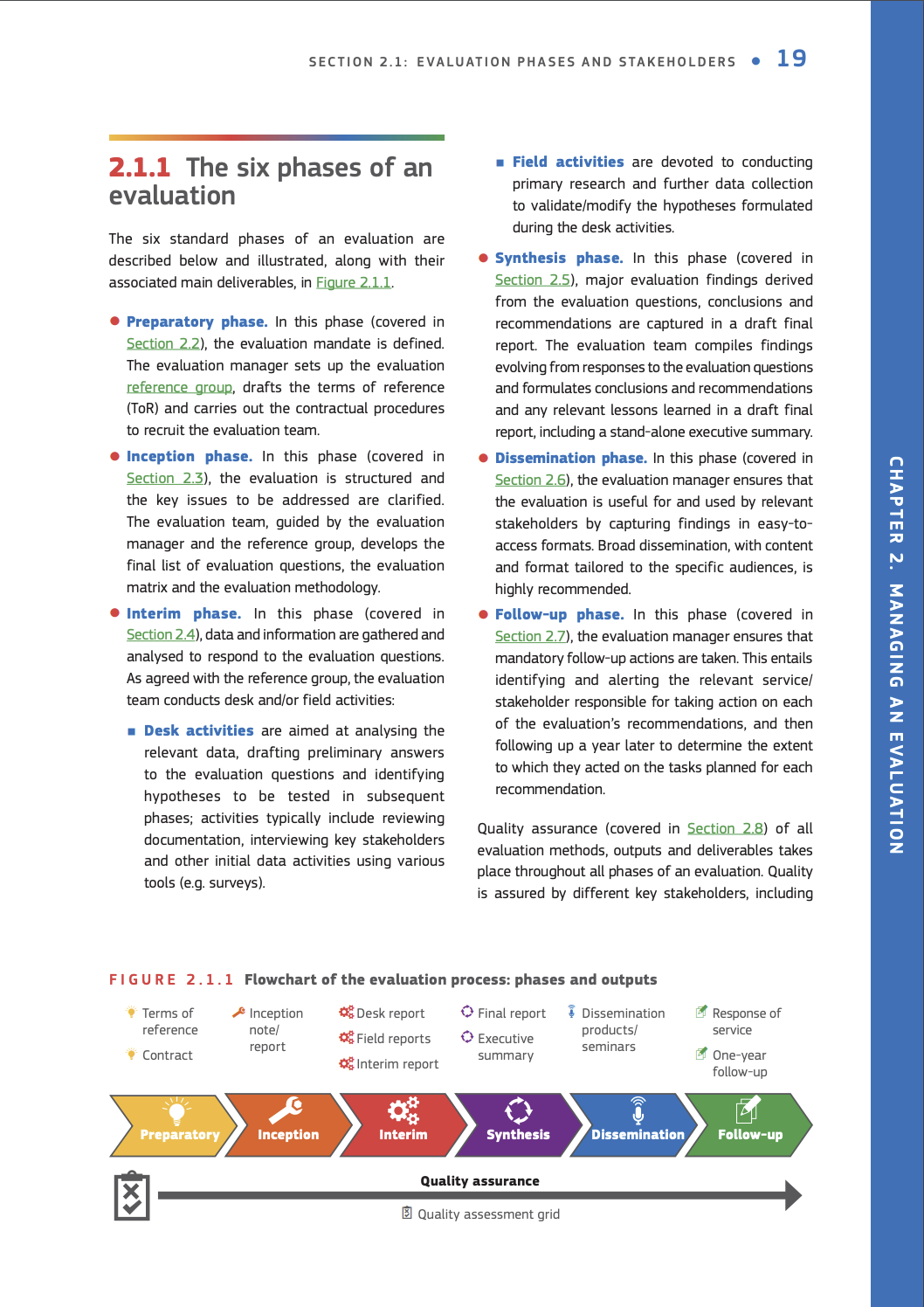
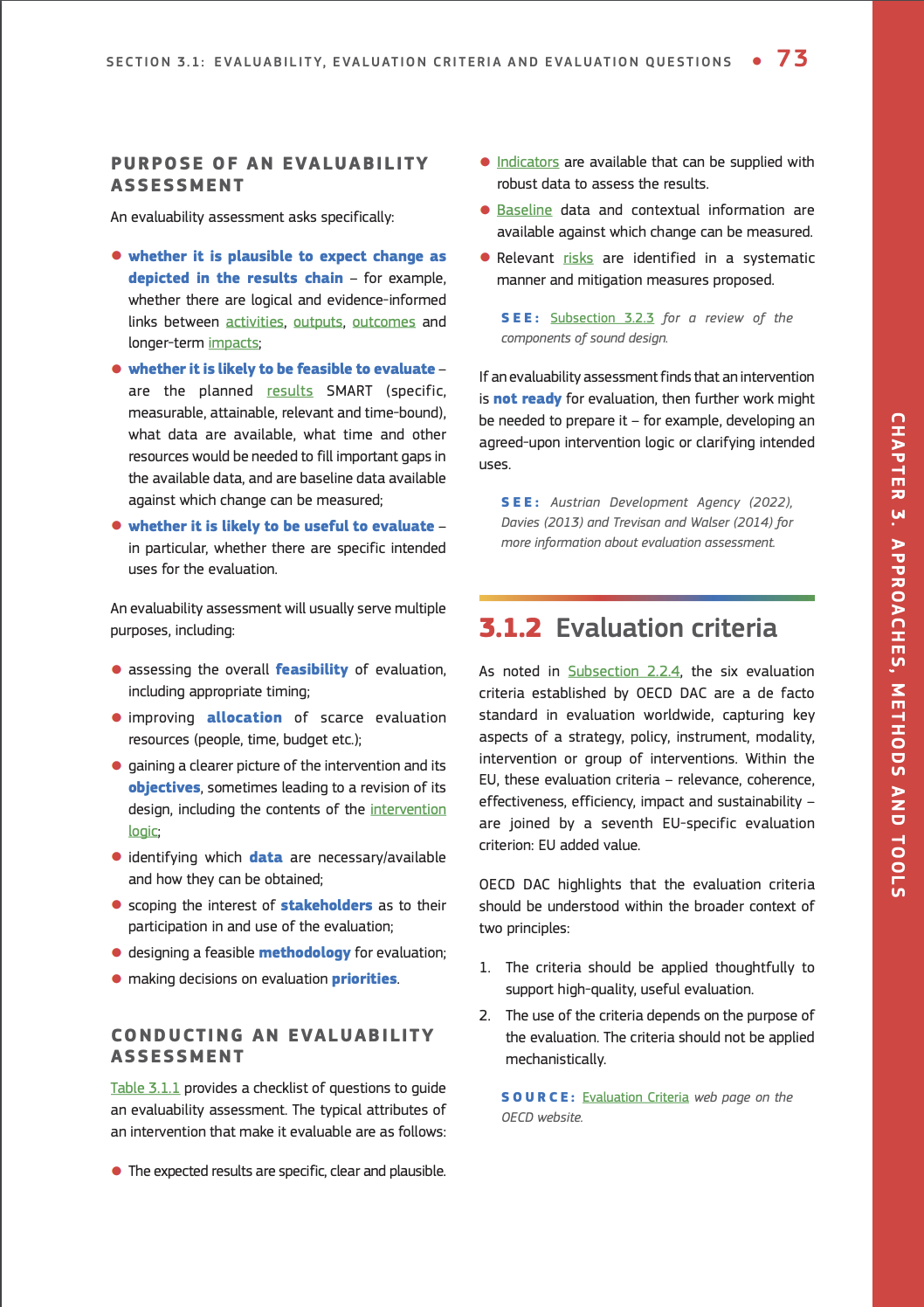
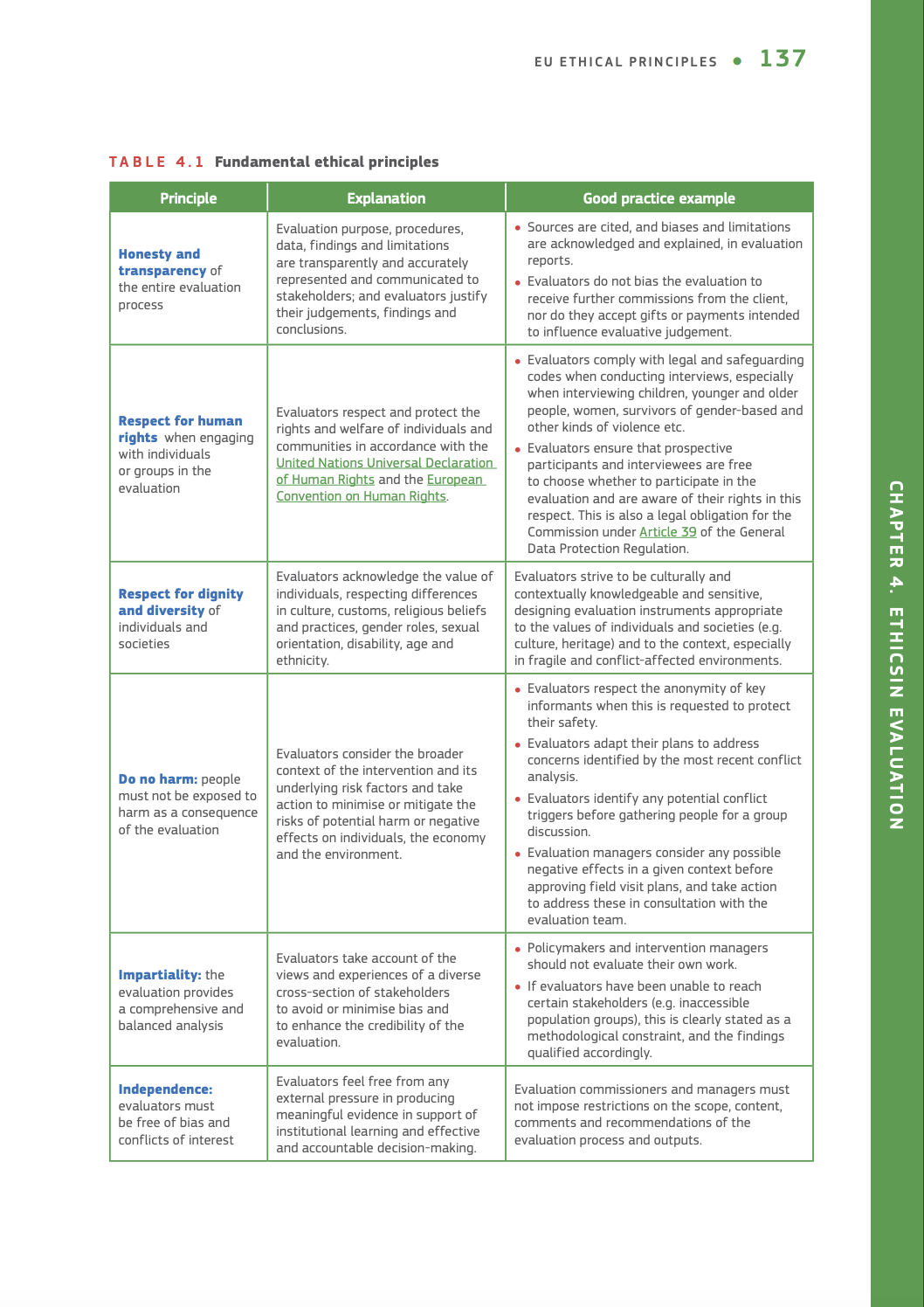


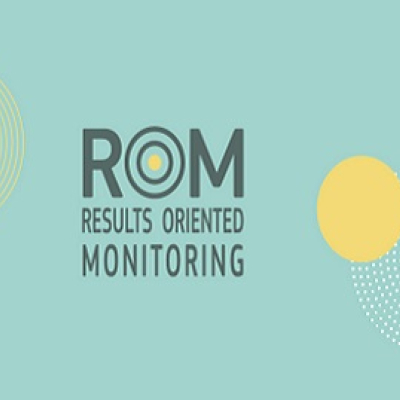



Log in with your EU Login account to post or comment on the platform.